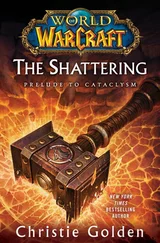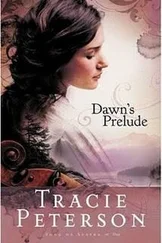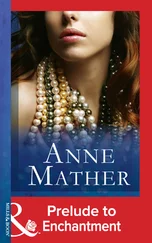Gerald Kersh - Prelude To A Certain Midnight
Здесь есть возможность читать онлайн «Gerald Kersh - Prelude To A Certain Midnight» весь текст электронной книги совершенно бесплатно (целиком полную версию без сокращений). В некоторых случаях можно слушать аудио, скачать через торрент в формате fb2 и присутствует краткое содержание. Жанр: Старинная литература, на английском языке. Описание произведения, (предисловие) а так же отзывы посетителей доступны на портале библиотеки ЛибКат.
- Название:Prelude To A Certain Midnight
- Автор:
- Жанр:
- Год:неизвестен
- ISBN:нет данных
- Рейтинг книги:3 / 5. Голосов: 1
-
Избранное:Добавить в избранное
- Отзывы:
-
Ваша оценка:
- 60
- 1
- 2
- 3
- 4
- 5
Prelude To A Certain Midnight: краткое содержание, описание и аннотация
Предлагаем к чтению аннотацию, описание, краткое содержание или предисловие (зависит от того, что написал сам автор книги «Prelude To A Certain Midnight»). Если вы не нашли необходимую информацию о книге — напишите в комментариях, мы постараемся отыскать её.
Prelude To A Certain Midnight — читать онлайн бесплатно полную книгу (весь текст) целиком
Ниже представлен текст книги, разбитый по страницам. Система сохранения места последней прочитанной страницы, позволяет с удобством читать онлайн бесплатно книгу «Prelude To A Certain Midnight», без необходимости каждый раз заново искать на чём Вы остановились. Поставьте закладку, и сможете в любой момент перейти на страницу, на которой закончили чтение.
Интервал:
Закладка:
Catchy lives on the top floor. She goes in by the poor old blistered side door, climbs resolutely, keeping in touch with the hand-rail of the banisters, which are painted the same colour as the outside of the shop. She tries to walk quietly because she is afraid of her landlady, Mrs Sabbatani. On the top landing she pauses for breath, by the little gas stove outside her door, fumbles for her key — still snivelling a little — and finds it. She works it into the keyhole like a soldier threading a darning needle, gets inside, switches on the light, and throws herself into a shiny grey-black rickety old easy chair by the gas fire, looking around the room, as if she expected to find someone waiting for her. She sees most of what she put into the room a dozen years ago; and a dozen years of wear and tear, neglect and decay. The furniture is her own. It cost something once upon a time; but now, even as prices are at present, she would have to pay a man to take it away. From where she sits she can see springs coming out of the bottom of the divan like entrails of a disembowelled horse. The bedclothes are neither here nor there; you might imagine that the patchwork quilt has gone mad and engaged a gay plaid travelling-rug and a filthy Witney blanket in mortal combat — from which the sheets have recoiled in terror to the foot of the bed, where they are trying to dig themselves in. The pillow is grey with eye-black, tears and dirt. The electric light has a beaded shade; the upper edges of the walls are in a striated half-shadow. She can see, if she strains her eyes, the oblong of pink wallpaper in its frame of dust where her picture, in the nude, by Schuster, used to hang until she sold it for the wherewithal to drown her sorrows eighteen months ago. There is another picture, too: a concatenation of triangles. She wept when she took it to the dealer and offered it for sale, because it was painted by Toon, whom she loved. She wept when the dealer said he would not have it as a gift. Now, whenever she sees it she wants to weep again.
Where, she asks herself, is Toon? Where are they all? And where is she, Catchy, who was so much beloved? A tear rolls down and makes a black star upon the ashy surface of the Kelim rug which Toto gave her, saying that it was a Bridal Rug. She would light the fire, only she has forgotten to get any matches. Tentatively she stirs the debris on her dressing-table. She could have sworn that she had matches. Her hands move jerkily: a couple of books, an ashtray belonging to the Cafe Royal, a small piece of mildewed cheese, a dirty towel, an empty aspirin bottle and a hair comb fall to the floor with a clatter. Catchy pauses, horrified, slightly unsteady on her feet. She does not want to disturb Mrs Sabbatani. That poor woman Mrs Sabbatani loves her so much, relies upon her so much, and is so sweet, so kind, so delicate, when she touches at the matter of arrears of rent. Thank God, thinks Catchy, thank God she has a little lavatory and hand-basin of her own so that she need not disturb Mrs Sabbatani…. After three provocative blows she hits the switch. The wash-basin looks like a dried-up river bed. But she has her own W.C. — spattered, derelict, deplorable. Yet it is her own, and nobody else’s…
At the back of Catchy’s throat something sounds like that tight corset bursting all its hooks. She begins to cry again.
‘Help me! Help me! Do something — anything!’ she cries, turning her bloodshot eyes upwards. The lavatory ceiling, marked with a brown stain that looks like the map of South America, gives no answer.
4
At last she goes to bed as quietly as she can. But the ruined divan twangs like a zither struck by a bored and vicious child. Downstairs Mrs Sabbatani hears it and sighs. Her sisterin-law, an elderly spinster, nods angrily and says for the thousandth time: ‘So she’s here again, the drunkard. What for are you keeping her here, what for? Why don’t you throw her out, why don’t you? Drunkards she wants, they should burn the house down yet!’
The widow Sabbatani, sad, pale, and exhausted, screws up her eyes as if in anticipation of a blow and says: ‘It’s not so easy to get an old tenant out of an unfurnished room.’
‘If they don’t pay their rent? No?’
‘Enough already, Sarah! What are you breaking your head for? So if Mrs Dory owes a week’s rent, she’ll pay.’
‘Pay! Pay!’ says Sarah with bitter mockery. ‘How will she pay? When will she pay, why should she pay? Pay!’
‘She gets an allowance from her husband,’ says Mrs Sabbatani, ‘she gives me what she can.’
At the sound of the word ‘husband’ Sarah throws down her needlework, lets out a hollow laugh, and says: ‘Husband! Allowance! She’s a prostitute. A prostitute to have in the house! I’ve got no patience with you.’
‘She’s here again with her prostitutes,’ says Mrs Sabbatani, with some irritation, ‘you’ve got prostitutes on the brain. She’s a married woman, a separated married woman. She mixes up with educated people.’
‘So how much does she owe rent, with her educated people?’ asks Sarah.
Mrs Sabbatani does not want to admit that Catchy has paid no rent for nearly five months.
‘A few weeks,’ she replies.
‘A few weeks? She should live so sure! A few months!’ Sarah says.
Harassed almost to tears, Mrs Sabbatani cries out in Yiddish: ‘Sarah, what do you want of my life? What do you want of my years, Sarah?’
‘She should be thrown out into the street, into the street,’ says Sarah, ‘my only wish is, Sam should be alive —’
‘Sam should be alive,’ says Mrs Sabbatani, glancing up with wet eyes towards a large framed photograph of a man in a bowler hat, which hangs over the fireplace. At this, her sisterin-law pauses for a few seconds. But then Catchy rolls over in bed and there is the plaintive whine of strained wire.
Sarah says: ‘Sam would have thrown her out into the street. Into the street, Sam would have thrown her out.’
‘Sam had nothing against the poor woman,’ says Mrs Sabbatani, ‘and my Sonia thought the world of her.’
‘What was, was. What is, is,’ says Sarah.
‘Drop it already!’ says Mrs Sabbatani. ‘I should throw out a poor woman into the streets? Will shemake me rich with her few shillings? It’s a mitzvah to let her alone.’
‘Fine friends they make,’ says Sarah with a sour smile, ‘drunkards they want in the house. Prostitutes they want in the house. I’m in her way. Better she should have prostitutes; drunkards better, she should have! She’s so rich, already, she can give the house away to such a class of people.’
‘And supposing?’ cries Mrs Sabbatani, with as much asperity as she is capable of — which is not much — ‘do you keep me? Do I owe you anything?’
Now Sarah begins to weep, beating herself in the face with an agonized hand and rocking forwards and backwards in her chair: ‘The bit of bread I eat in the house she throws up in my fate! I’m in her way, she wants I should go away to a home! Weh ist mir! Weh ist mir! Sam should be here to see it.’
Now Mrs Sabbatani soothes her, saying: ‘Sha, sha! May I never move from this chair, Sam never had anything against Mrs Dory. And she thought the world of my Sonia. Whenever she sees a picture of my Sonia, she cries like her heart would break. I’ll make a nice cup of tea.’
This had been going on, night after night, since Sam Sabbatani died and Sarah came to live with his widow and cheer her up. Having lost her daughter and her husband in one year, Mrs Sabbatani was so broken by grief that it was thought she might go out of her mind. So Sarah came to comfort her. Now, cvery night, as the divan springs twang out their weary discords under the weight of Catchy’s body, Sarah raises her voice in protest, and the end is always the same. Mrs Sabbatani is soft, slow, and sweet as honey; and as obstinate to cling. She always has the last word: Sam had nothing against Mrs Dory, and the child Sonia thought the world of her.
Читать дальшеИнтервал:
Закладка:
Похожие книги на «Prelude To A Certain Midnight»
Представляем Вашему вниманию похожие книги на «Prelude To A Certain Midnight» списком для выбора. Мы отобрали схожую по названию и смыслу литературу в надежде предоставить читателям больше вариантов отыскать новые, интересные, ещё непрочитанные произведения.
Обсуждение, отзывы о книге «Prelude To A Certain Midnight» и просто собственные мнения читателей. Оставьте ваши комментарии, напишите, что Вы думаете о произведении, его смысле или главных героях. Укажите что конкретно понравилось, а что нет, и почему Вы так считаете.








![Айзек Азимов - Прелюдия к Основанию [= Прелюдия к Академии // Prelude to Foundation]](/books/435122/ajzek-azimov-prelyudiya-k-osnovaniyu-prelyudiya-k-ak-thumb.webp)



